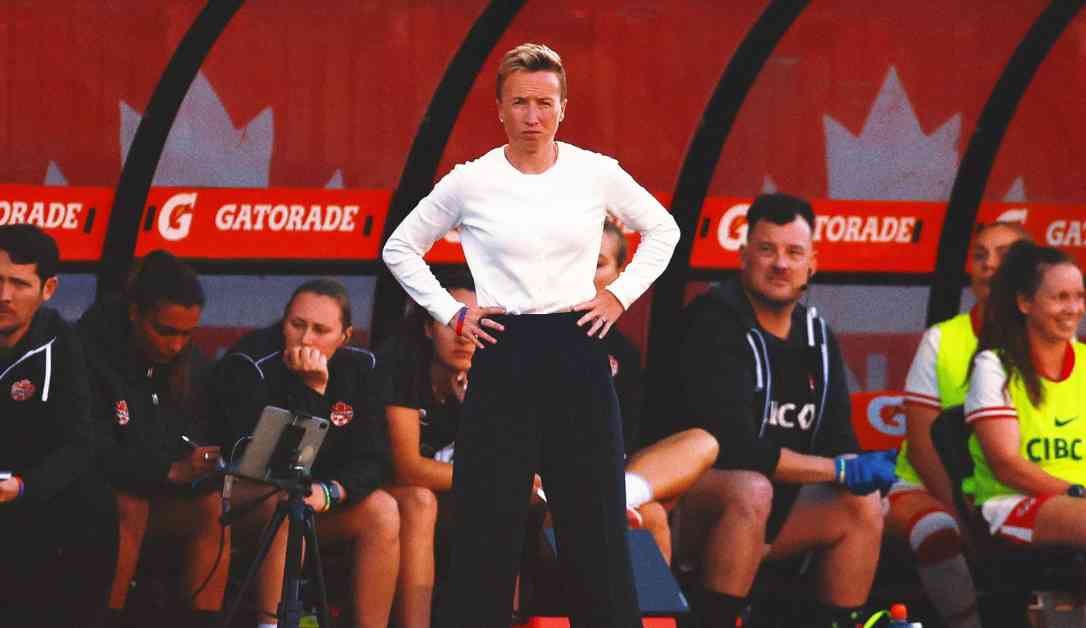Canada’s women’s soccer coach, Bev Priestman, has been sent home from the Paris Olympics due to a drone spying scandal. The Canadian Olympic Committee made this decision after a report by TSN alleged that both the men’s and women’s national soccer teams had been using drones to spy on opponents for several years. This led to additional information coming to light about previous drone use against opponents before the Paris 2024 Olympic Games.
As a result of this scandal, Priestman has been suspended from her duties until the end of the tournament and the completion of an independent external review by the organization. Priestman, who had recently signed a contract to coach Canada through the 2027 Women’s World Cup, had taken over the team in late January. She had previously led Canada to a gold medal at the 2021 Olympics but faced early elimination in last year’s World Cup.
Before returning to coach the Canadian team, Priestman had spent time coaching in England and New Zealand. The fallout of this scandal also led to the suspension and sending home of assistant coach Jasmine Mander and Canada Soccer analyst Joseph Lombardi. New Zealand had lodged a complaint with the International Olympic Committee after drones were flown over their closed practice sessions.
Priestman, in a statement, apologized to New Zealand and expressed that the actions taken did not reflect the values of the Canadian team. FIFA has opened hearings against Canada Soccer, Priestman, Lombardi, and Mander, while Canada Soccer announced its intention to conduct an independent review. A non-accredited member of Canada’s soccer team staff was detained by French authorities after a drone was spotted above training.
In a previous incident, a Canadian man was given an eight-month suspended sentence for filming closed training sessions of New Zealand with a drone. The Canadian Olympic Committee and the New Zealand Olympic Committee both issued apologies for the incident, emphasizing their commitment to fair play and upholding the integrity of the Olympic Games.
The use of drones to spy on opponents is not a new allegation for Canada’s national teams, as the report mentioned incidents involving both the men’s and women’s teams in previous tournaments. While there were no accusations of cheating during the men’s team’s run to the Copa América semifinals, the report highlighted a pattern of spying on opponents that has been a long-standing issue for Canada’s national teams.
Overall, this scandal has raised concerns about fair play and sportsmanship in international soccer competitions. It serves as a reminder of the importance of upholding the values of integrity and respect in sports, both on and off the field. The repercussions of this incident will likely have a lasting impact on Canada’s soccer programs and their reputation in the global soccer community.








